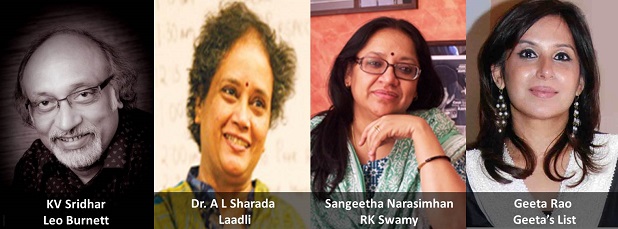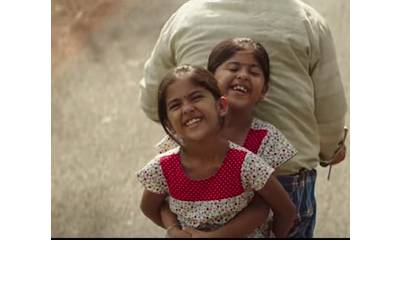Perspective | Do we need to be gender sensitized?
When India wakes up to a brutal crime on one Monday morning, it goes berserk crying for legislation, blaming the media, television and the film industry and so on and so forth as the reason that propagates crime. Why it is that India rises up to an occasion only after an untoward incident happens? Why is it that India awakes from it stupor every blue moon when a grave crime is committed? Why is it that India is not awake and alert every day?
There are regular debates, protests and people turn out in large number to express their solidarity. But to what effect, the question remains. For India will go back to the same old days of redundancy as the press finds a better more pressing issue to cover and people will find their mundane life calling them back home and to office. In times like these the need of the hour is not empty talks and useless protests but meaningful action. India always needs the media as an external agent to shake it up and realize its duty. India protests for two days to forget it for the rest of the 28 days.
Why is it that India has to soul search for resolutions only after the problem is thrusted on their face? Why is it that India seeks all the resolution to be served to them on a platter? Why is India not ready to take the initiative to bring about a change? Why is it that every individual cannot make an effort to change India? Why does India only engage in empty meaningless talks? Why does India only believe in the blame game? Why is it that everything comes to the door of politicians and ends at legislation? Why? Why? Why? Why are there only endless questions and not endless answers which take us forward?
With these many questions bubbling forth in mind, I decided to find a definite answer to it. Did the answer lay in sensitizing the entire media and entertainment industry towards the portrayal of women and representing gender equation in every day work? Or did the key lie in changing individuals and their mindsets first, for that would infinitely be seen in their work. We asked the professionals of the media and advertising fraternity to help us find an answer.
The scantily clad woman on screen is a piece of aesthetic beauty to be admired while the one decently dressed on the road is an abject of sexual satisfaction to be fulfilled. Women have all the right to wear everything but the men do not have the right to control their libidos. She is projected as an object of sexual fantasy on screen and therefore her image as a whore available every time to satisfy them persists.
Television is a very powerful medium and it has more power for it constantly bombards you with images that compel anyone to form a perspective on the basis of what you view. Therefore the content creators will have to introspect in the manner they are showcasing women. Sangeetha Narasimhan, Executive Creative Director, R K Swamy BBDO Pvt Ltd believes that film and TV will have to take responsibility and so do the people who lap it up! After all society is about all of it together. The emphasis goes more and more on getting viewership ratings to get business, the easy way out therefore is to covertly and overtly show women as sex objects, because that will get men to look at the content. This in turn does have a negative effect on how women are viewed in general leading to crime against them. “I believe that every tool can well become a weapon. It depends on whose hands the tool gets into. Thus film and TV content can and do play a positive role in changing people’s outlook in some instances.” Geeta Rao, Creative Director, Geeta’s List agrees that “television is an extremely important medium of change and we must use this to our advantage.”
Dr A L Sharada, Programme Director, Laadli however argues that, “We cannot say that TV and Films are solely responsible for the crimes against women. They are but two factors. There are many other issues like socialization in homes, schools, and the gap in the changing perceptions of women and the men in the post liberalization context which is threatening the men who are still stuck in patriarchal culture.”
KV Sridhar National Creative Director, Leo Burnett India, popularly known as Pops agrees that you cannot derive anything directly about the influence of television and film on people for there are many factors that make them behave. Culture, Education, Rituals, Traditions all have a role to play in shaping the perception of a person thus holding television and films solely responsible for the rising crimes against women is not justified.
It is an accepted fact that India consists of a society which is conservative and traditional in its outlook. It still considers that the perfect role that a woman could play was in the confinement of her house of a mother, daughter and sister. Beyond these traditional roles there can never be an identity. Even a working professional woman has to handle the dual responsibility of the home and her office while men remain scot free of the responsibilities of the house. The content on the film and television reinstates this fact clearly through the portrayal of a strong, perfect women as the one who handle the home and the office effectively, while the ambitious overtly professional women is the vamp in the life of most of the families. Rao says that the media has given women limited roles in decision making or power dynamics. On the other hand we have made her this superwoman who multitasks successfully which sets up unreal expectations. It is ridiculous for women to carry a double burden all the time while men are applauded for being single minded and focused. There is such a high benchmark set for how we show mothers but none for fathers. Motherhood not parenthood seems to what tilts the balance in bringing up children. This totally absolves men from responsibility.
A similar opinion is held by Dr Sharada, she says the reality is that close to half of the households in India are woman headed yet we consider the man to be the bread earner. Media has a big role in bringing this fact to into light and reflecting the changing reality. Most women are mothers and a lot more. We need to give woman her due place, rights and acknowledgement in society.
Pops shared with us the crucial yet shocking facts of a global research which reveals that the world runs on women power. Men are lazy and egoistic while it is the women who are productive and taking care of the homes and managing work. This makes the men feel threatened and ultimately it questions their manhood.
Thus what we need is to celebrate women who have progressed remarkably in the field and also give them the opportunity to balance both the work and the home simultaneously. We need to allow the women to celebrate and take pride in them for being a woman and let’s agree that it is not only the working woman who is intellectual and professional. There are enough women who are at home out of choice as they want to make sure their children grow up in a secure environment and understand the importance of good values.
The issue of fairness cream though sticky has always existed. For ages India has been obsessed with the idea of a fair women and this is now replicated on screen. The Fair and Lovely ads promote the idea that for a woman to have her talent recognized, she needs to have a fairer skin which will attract the eyeballs. Is talent measured by good looks and the way she dresses? Why do we fail to see a woman beyond her face? Although Geeta Rao agrees that we should create a new paradigm and not create irrelevant connections between looks and talent. But we still have to create good, effective ads that sell and charm the consumer into buying a product without offending her.
Sangeetha says that a woman must be measured by more than her looks but then in today’s ‘video/picture byte’s society everyone-men and women feel the pressure of being seen as groomed and good looking. So all the talk in the world is not helping.
The perfume ads have created uproar and it has created two opinions around it. One that a woman is bold enough to choose a partner for her, the other that she is outright dumb to make a choice on the basis of a perfume. India has varied cultures and is in different degrees of evolution portraying women as bold enough to make a choice has to be done in a manner where the bold woman makes her choice in a manner that is sophisticated enough to gain the respect of men and women at large. Sangeeta emphasis that “most of the Ads are such an exaggeration that they make the women look as if they are desperate and this is a cause of worry. Once again it’s a clever way of getting eyeballs – as usual ratings and monetary gains come ahead of all values!”
Considering the mindsets of the Indian people the woman as a decision maker is an idea which will never strike them. The dirty gaze of men and the insidious ideas of women will always surface with content like this. Why do then our content creators forget the obvious and do not create content keeping the set values in mind?
Dr Sharada strongly points out that the argument of the advertisers that they are focusing on the right of woman to make choices or express her sexuality is not convincing, as the whole concept of the ads is based on objectifying the woman. Ad professionals are capable of much more creativity than what they show when it comes to Deo Ads. Geeta holds a different opinion and argues that the deodorant ad in question is targeted at men and panders to a male fantasy –this is what men would like to believe happens therefore it depends on who is defining the values.
Our country is defined by a strong value system and the rising middle class swears by it. We might term ourselves to be educated and cultured but the fact is that we hide behind the mask of civility and our conscience remains guilty of being a hypocrite. We are double faced; we do not follow what we preach and moreover sensitization is not only limited to men for we need women to be sensitized. We as a society identify women into two categories the first being the sacrosanct sacrificial goddess and the other as the outcaste whore. We fail to perceive her as someone who can be in the line of two.
“There is a need to sensitize everybody, But, yes I agree, it is more important that the educated people start questioning their own biases and addressing them as they are in positions of power to influence the policies, programs and values of the society through their decisions, communication, messaging and programs,” said Dr Sharada.
Pops had an interesting view in this case. He said that the industry needs to do a demarcation of the audience. There is no guarantee that the educated may comprehend things in a better light than the uneducated. However research across the world shows that the uneducated has an IQ of a six year old therefore it completely depends on how these people decode the symbols presented to them and put the pieces together.
Narasimhan nodded in agreement to that that the people in this industry like all others are also guilty of dichotomous behavior. But what else can we expect; we are all from the same society. This kind of subject needs a dynamic and mass-moving personality who can bring about a change.
Pops shared Narasimhan’s outlook and said that there is no leadership available in our country that can drive a change and therefore the protests that we saw in Delhi took a chaotic shape. It was a counter-productive effort. He cited Gandhi as an example of a mass leader who could bring people on the streets to support his cause and this was possible because of the clear vision that he possessed; the modern day leaders clearly lack this insight and vision.
Thus what we only do is engage in frivolous conversation and do not do anything to bring about a meaningful act by sensitizing the industry towards the violence on women. It has become a common phenomenon for us to indulge in meaningless protests for few days, vent out our anger on streets and then we have an another issue to pre-occupy us with in our lives. A massive effort is needed across the board – schools, colleges, offices, villages, families in buildings & societies, police, Govt bodies, lawyers and the list goes on and on. However the industry experts hold a different view. Dr Sharada says that till recently, there were no discussions on gender issues among media and advertising professionals. Opening up communication channels is the first step which would help us take a stand on the issue subsequently. It is not possible always to practice what we preach due to various factors. But being conscious of the fact helps us to be reflective and find solutions to the issues ultimately.
Rao says that “Talks are an essential part of sensitization. If we don’t point out what the issues at stake are then how will anyone be able to act? People need small actionable steps. Otherwise we can all make sweeping statements and no one will disagree. Telling people to act without an action plan is counterproductive in my opinion.”
The definite course of action has to be charted out and this cannot begin with an organization but with the determination of each and every individual to bring about a change in his or her sphere in a however small manner possible. Pops said that I have learned all the values from the most influential, powerful and righteous woman in the world-my mother and everyone has that woman in her life even Osama had a mom like that. It is then about celebrating and respecting these women in our life and if we can do that we are sensitized towards every woman and that will obviously be reflected in our work.
Geeta Rao believes that, “We should do what we can” and Sangeetha took this idea forward and said that in every field it is possible to bring about change. You have to set out your goals, make a plan and stick to executing it no matter what. There is no need to sway if you have the courage of conviction and there is all the need in the world to be resilient as you are bound to face resistance. Take it one day at a time and by the end of your life you would have brought change.
Well I too believe that the winds of change have begun to blow but it will be more effective if each and every individual pledges to be more sensitized and steps away from stereotyping men and women and takes action. It’s all about accepting that let the woman “Be” what she wants to be and allowing her to break free the shackles to live her life in the manner she wants to. Thus at the end of the day it is for both gender to realize that LIVE & LET LIVE. I By Rabab Rupawala [rabab(at)adgully.com]





















Share
Facebook
YouTube
Tweet
Twitter
LinkedIn